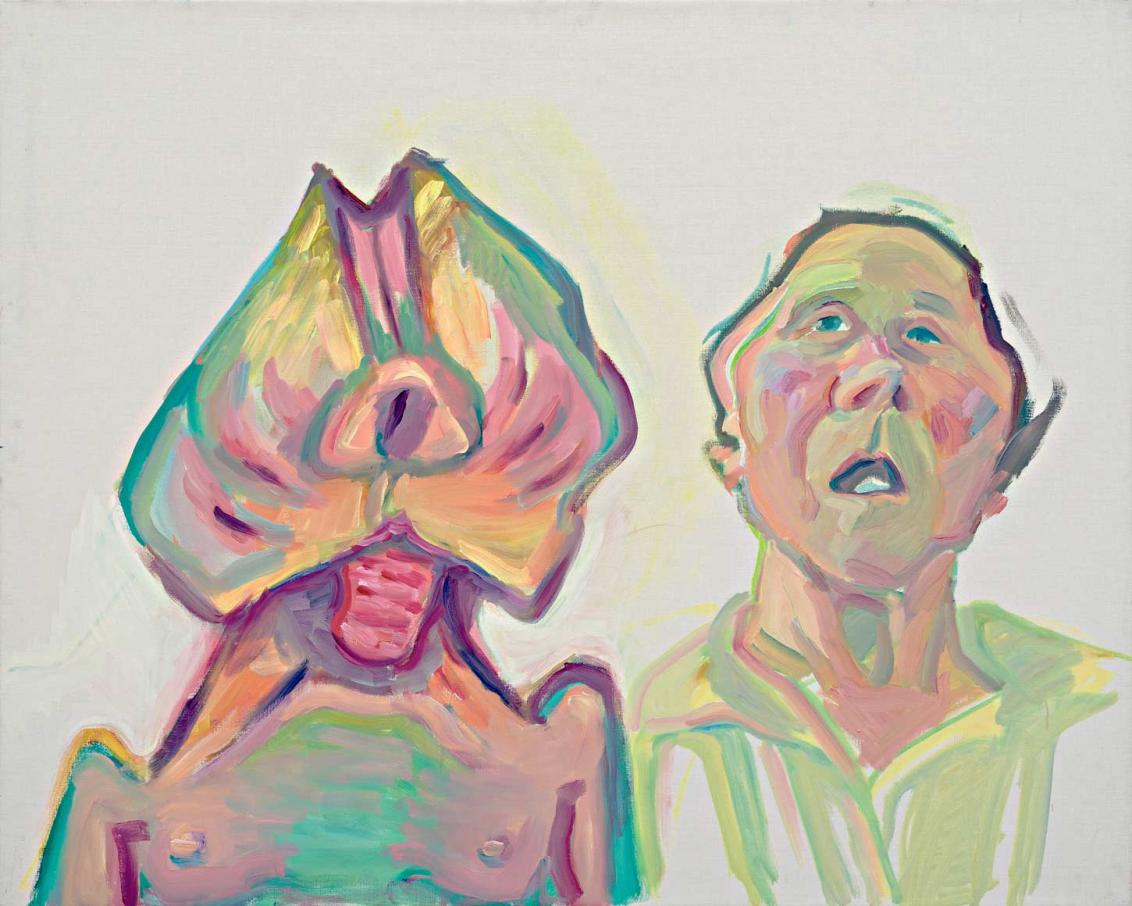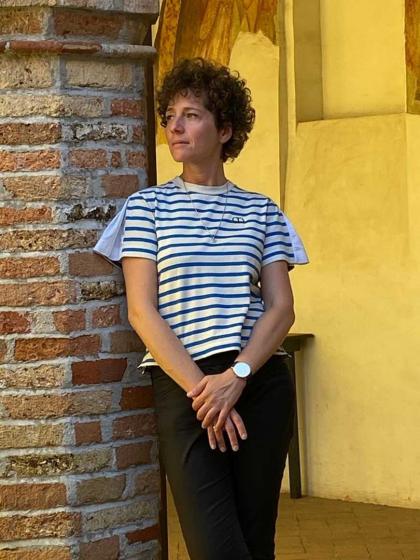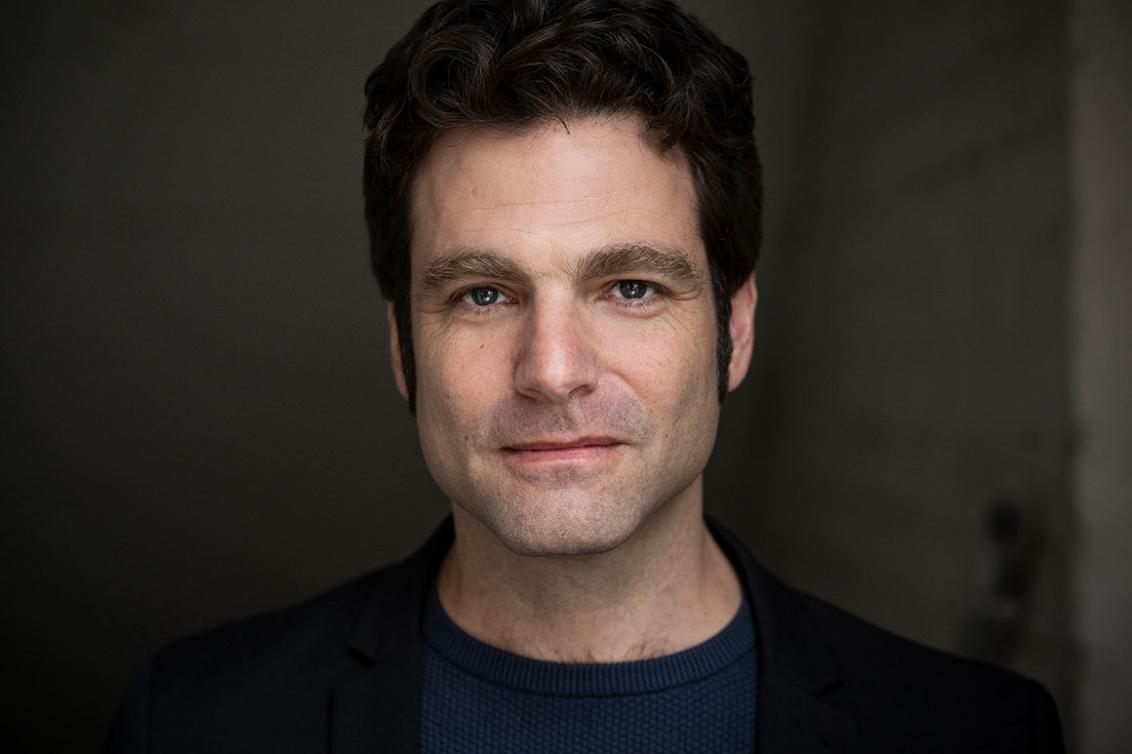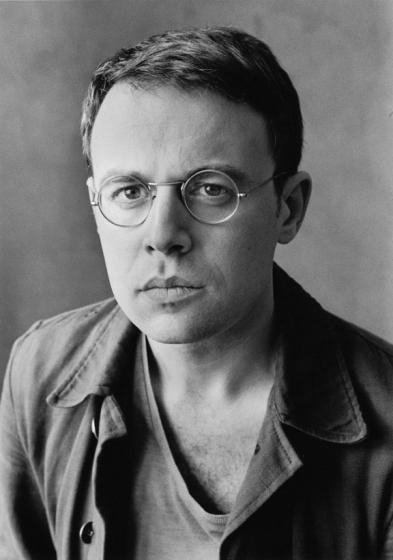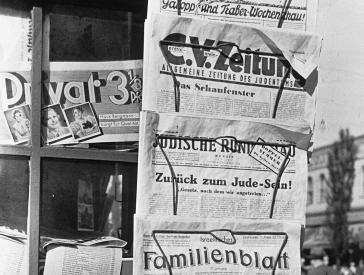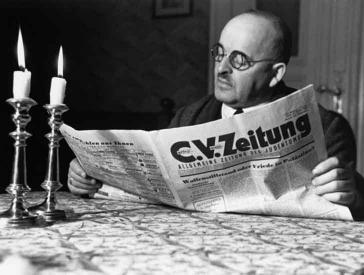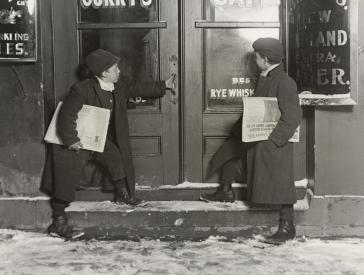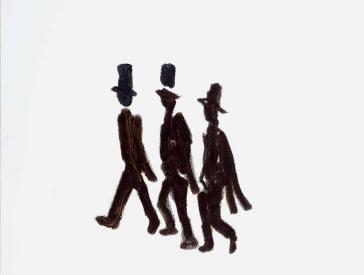Our Cultural Program in February 2017
Press Release
Press Release, Wed 25 Jan 2017
We herewith invite you cordially to the cultural program at the Jewish Museum Berlin in February 2017.
Exhibition Eran Shakine: A Muslim, a Christian and a Jew: 28 October 2016 – 5 March 2017
In his large-scale drawings, Eran Shakine (born in 1962 in Tel Aviv) humorously considers the similarities and differences between Muslims, Christians, and Jews. The exhibition title sounds like the beginning of a joke, but here, there are no stereotypes. An outwardly indistinguishable trio in the series is a symbol for the three major world religions. In search of common origins, the love of God or dialog with Moses, they experience various bizarre or everyday situations.
| Location | Libeskind Building, ground level, Eric F. Ross Gallery |
|---|---|
| Opening hours | Mon 10 am – 10 pm, Tue - Sun 10 am – 8 pm |
| Admission | with the museum ticket (8 €, reduced 3 Euro) |
| More information | www.jmberlin.de/en/eran-shakine |
- Kontakt und Akkreditierung
-
Press office
T +49 (0)30 259 93 419
presse@jmberlin.de
- Address
Jewish Museum Berlin Foundation
Lindenstraße 9–14
10969 Berlin
2 February: Have you heard this one …? – Draw your Joke!
Comic-Workshop for Kids Aged 8-12
A Muslim, a Christian, and a Jew went out into the world and … Eran Shakine’s drawings confront us with the question of what people want in their lives. Together we explore what religion has to offer and how Eran Shakine sees the religions. What is the Holy Scripture? Who were Adam and Eve? What does water have to do with religion? We consider drawings and objects, play pantomime and fill speech bubbles, choose materials, and draw our very own comic strip.
| Meeting Point | Old Building |
|---|---|
| Time | 10 am – 3 pm |
| Admission | 3 € + museum admission fee (incl. materials, snacks, drinks) Please bring a packed lunch. |
| Booking | Phone: +49 (0)30 259 93 437 or kinder@jmberlin.de |
7 February: Shakine Live
Artist Talk with Live Painting and DJ in the Exhibition
It is with an easy hand that Eran Shakine draws live motifs from his cycle of works “A Muslim, a Christian and a Jew Knocking on Heaven’s Door” on large-format canvases. The visual experience is accompanied by a DJ and followed by a discussion with the artist, whose picture stories get us thinking about the essence of the world’s religions.
| Location | Libeskind Building, ground level, Eric F. Ross Gallery |
|---|---|
| Time | 7 pm |
| Admission | with the museum ticket (8 €, reduced 3 Euro) |
| Bookings | Phone: +49 (0)30 259 93 488 or reservierung@jmberlin.de |
9 February: Our Father – A Sinti Family Recounts
Discussion and Reading as Part of the New German Stories Series
In her book Vater unser – Eine Sintifamilie erzählt (Our Father – A Sinti Family Recounts), German Sintezza, civil rights activist, and author Anita Awosusi gives insights into her family biography and into the historical events and aftermath of Nazism. Taking as her starting point conversations with her father, musician and violinmaker Hermann Weiss, Awosusi talks about his life and survival, deportation, forced labor, Soviet war imprisonment, and his return to his hometown of Karlsruhe. At the same time, she reflects on her own development from the child of the post-war period to the journalist and active civil rights campaigner for the German Sinti and Roma.
| Moderation | Rosa Fava (W. Michael Blumenthal Fellow Jewish Museum Berlin) |
|---|---|
| Location | W. Michael Blumenthal Academy Hall |
| Time | 7 pm |
| Admission | free |
| Bookings | Phone: +49 (0)30 259 93 488 or reservierung@jmberlin.de |
12 February: New Year of the Trees
Stroll Through the Exhibition and Screen-Printing Workshop
Tu Bishvat is the Jewish New Year’s festival of the trees and is celebrated in winter. That’s strange, isn’t it? When outside it is still gray and cold and the trees have no leaves. But while it is still deepest winter in Germany, the trees are beginning to blossom again in Israel. On the New Year festival of the trees, the seven holy fruits are eaten – wheat, barley, grapes, figs, pomegranates, olives, and dates. We will look for them in the exhibition and in the Diaspora Garden. And ultimately, we will bring the spring to us here already in February and with Martin Samuel, screen printer from Berlin, us kids and adults will design our very own spring-like shoulder bag.
For Families and Children of 6 and Above
| Meeting Point | Old Building |
|---|---|
| Time | 11 am – 1 pm |
| Admission | 3 € + museum admission fee (incl. materials, snacks, drinks) Please bring a packed lunch. |
| Booking | Phone: +49 (0)30 259 93 437 or kinder@jmberlin.de |
13 February: God’s Body
Christoph Markschies in Discussion with Peter Schäfer
In his book Gottes Körper (God’s Body) on ancient religions, Christoph Markschies acquaints us with an astonishingly strange Christianity deeply rooted in the pagan concept of God. On the basis of the links between the ancient religions, he explains why the concept still common today of God as a disembodied being did not become firmly established until the Middle Ages, and how people imagined the body of God. Markschies pursues philosophical and theological debates, visits the ancient temples, and reveals numerous references between the Christian and Jewish God and the pagan gods. In addition, it is also about the human being – the body, the soul, and the healing power of religion. Those who like to take a cold shower in the morning should delve into this new book with its disturbing fresh look at the Christian God.
A cooperation with C.H. Beck Publishers
| Location | W. Michael Blumenthal Academy Hall |
|---|---|
| Time | 7 pm |
| Admission | free |
| Bookings | Phone: +49 (0)30 259 93 488 or reservierung@jmberlin.de |
16 February: The Acid Test – How Fear of Foreigners is Threatening our Democracy
Reading and Panel Discussion with the Author
Everyone is talking about how refugees and immigrants can integrate – Lamya Kaddor turns the perspective around. In her book, Kaddor, Islamic scholar and educator, asks how much the majority society has to change in order to enable successful coexistence and prevent the renouncing of liberal principles. After Die Zerreißprobe (The Acid Test) was launched, the author was exposed to such grave threats from the right spectrum that she had to take leave from her teaching position. Lamya Kaddor will read from her book and discuss the current polarization of society, the exclusion of critical voices from public discourse by right-wing populists, and political and societal counterstrategies with State Minister Aydan Özoǧuz and Andreas Zick from the Institute for Interdisciplinary Conflict and Violence Research (Bielefeld University).
| Moderation | Yasemin Shooman (Jewish Museum Berlin) |
|---|---|
| Location | W. Michael Blumenthal Academy Hall |
| Time | 7 pm |
| Admission | free |
| Bookings | Phone: +49 (0)30 259 93 488 or reservierung@jmberlin.de |
22 February: Europe Against the Jews. 1880–1945
Daniel Cohn-Bendit Discusses with the Author Götz Aly
The Holocaust cannot be explained solely by German history. In both Western and Eastern Europe, hostility towards Jews had increased dramatically since 1880 – propelled by nationalism and social crises. Without diminishing the guilt of the German perpetrators, historian Götz Aly shows how rivalry and envy, discrimination and pogroms have contributed in many places to preparing the ground for deportations and murders. For the first time, modern antisemitism is presented as a cross-border phenomenon.
A cooperation with S. Fischer Publishers
| Location | Old Building, level 2, Great Hall |
|---|---|
| Time | 7 pm |
| Admission | free |
| Bookings | Phone: +49 (0)30 259 93 488 or reservierung@jmberlin.de |
23 February: Ethical Questions in Judaism and Islam
Dialogical Lecture Series
The lecture series addresses ethically sensitive questions from different areas of life and illuminates them from Jewish and Islamic perspectives. Two scientists are invited to each lecture to present their respective positions and to enter into a dialogue with one another other.
The Boundaries of Life – Bioethical Challenges
Progress in biotechnology and medicine confronts secular and religious communities with themes that challenge the human self-image, traditional values, and social conditions. Laurie Zoloth, professor of religion at Weinberg College, Northwestern University, and İlhan İlkılıç, director of the Institute for the History of Medicine and Ethics at the University of Istanbul, will discuss Jewish and Muslim stances on treatment methods of reproductive medicine, stem cell research, gene therapy, and euthanasia. In doing so, they touch on the great existential questions surrounding the beginning and the end of life, as well as on the dignity and meaning of the human existence.
A cooperation with Allianz Cultural Foundation
German simultaneous translation will be available
| Location | W. Michael Blumenthal Academy Hall |
|---|---|
| Time | 7 pm |
| Admission | free |
| Bookings | Phone: +49 (0)30 259 93 488 or reservierung@jmberlin.de |
Press Photos
Free to use for current reporting only; a copy of any articles is requested.
Press Images Events

Fri 10 Jan, Tue 25 Feb, Thu 6 Mar & Tue 8 Apr 2025, 4 pm
Curator's tour through the exhibition Access Kafka
Picture: Mary Flanagan, video still from [borders: chichen itza], 2010; courtesy of the artist
Download (ZIP / 999.24 KB / in English and German)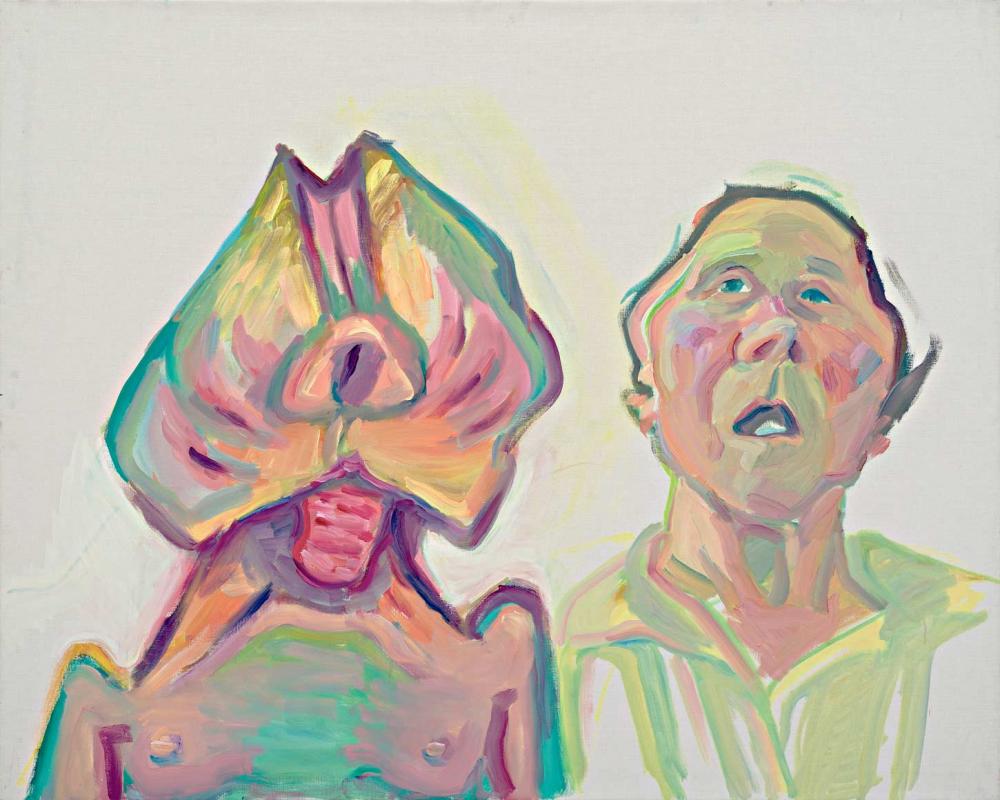
Bookable tour through the exhibition Access Kafka
by appointment (between 1 Jan and 4 May 2025)
Maria Lassnig, Zwei Arten zu sein (Doppelselbstporträt), 2000, oil on canvas, 100,3 x 124,7 cm; © Maria Lassnig Stiftung / VG Bild-Kunst, Bonn 2024
Download (ZIP / 1.14 MB / in English and German)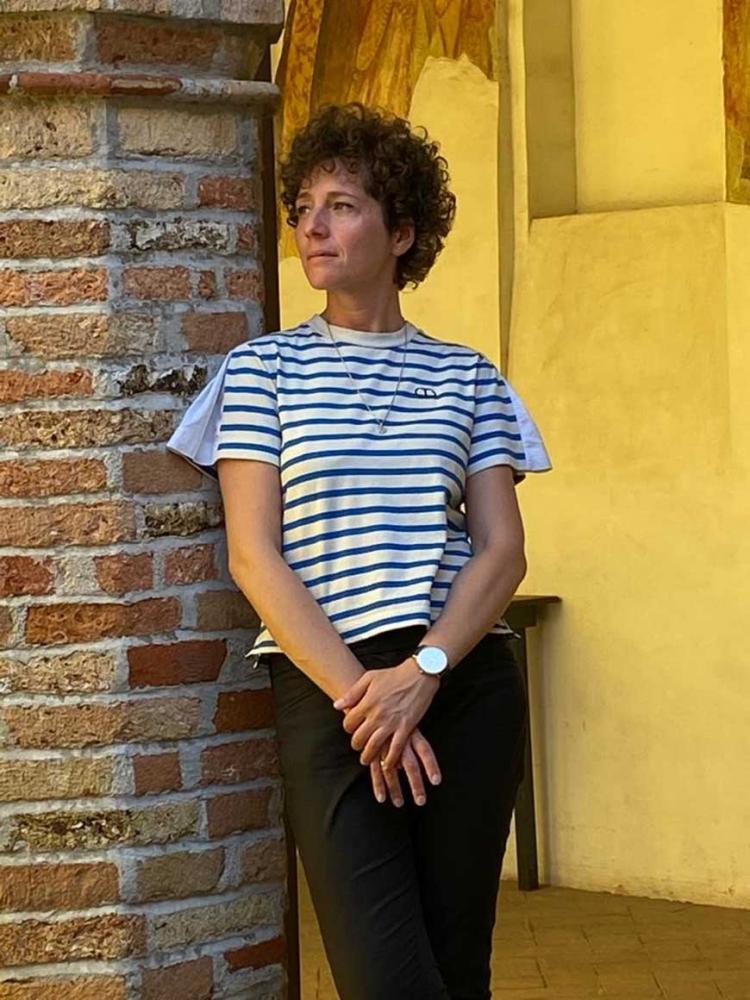
Mon 28 Apr 2025, 7 pm
Digital Lecture Series – Déjà-vu? New Search for Old Answers
Sasha Marianna Salzmann; photo: Benedetta Senin
Download (ZIP / 619.45 KB / in English and German)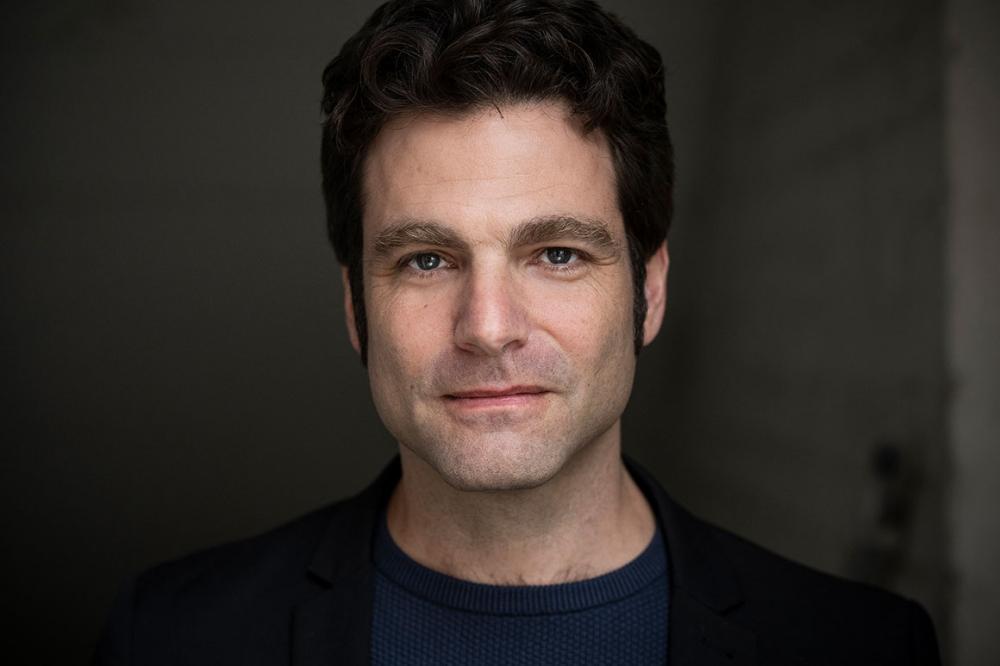
Mon 28 Apr 2025, 7 pm
Digital Lecture Series – Déjà-vu? New Search for Old Answers
Ofer Waldman; photo: Bernd Brundert
Download (ZIP / 946.23 KB / in English and German)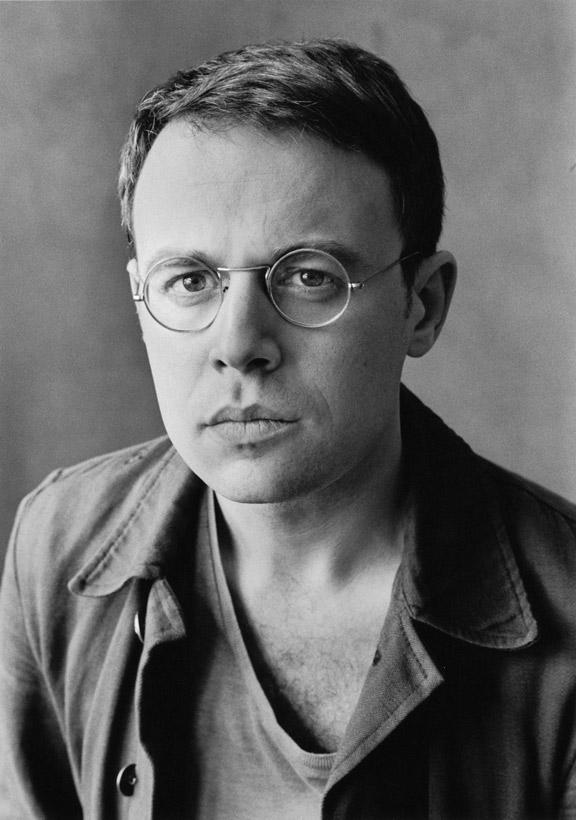
Tue 20 May 2025, 7 pm
Joshua Cohen about the exhibition Inventories: The Legacy of Salman Schocken
Joshua Cohen; photo: Marion Ettlinger
Download (ZIP / 967.37 KB / in English and German)


